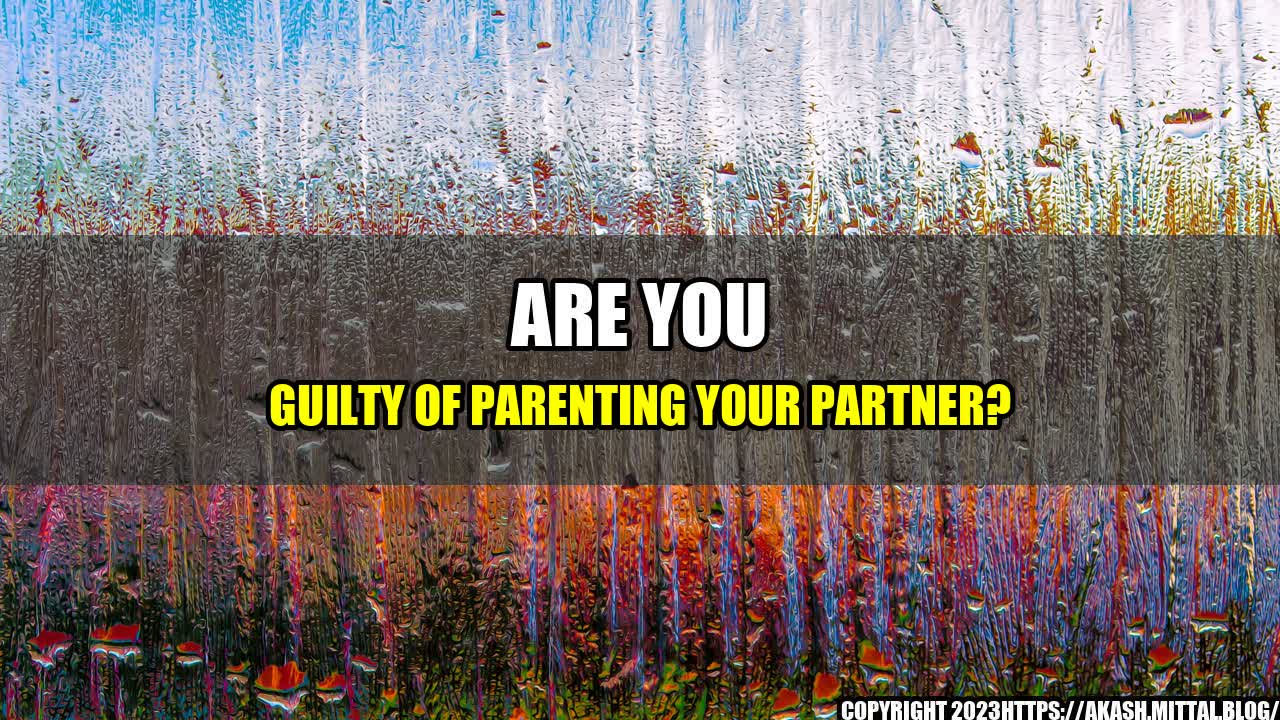You might think that being a loving, nurturing partner means taking care of everything for your significant other. After all, that's what parents do for their children, right? But the truth is, treating your partner like a child can lead to resentment, frustration, and even the end of your relationship.
Parenting your partner can take many forms, from nagging them about chores to making all the decisions in the relationship. Here are some examples:
- Doing everything for your partner, like making their lunch or doing their laundry, without giving them an opportunity to contribute.
- Criticizing your partner's choices, like what they wear or what they eat, in a way that feels controlling.
- Being overly protective or anxious about your partner's safety or daily activities, to the point where they feel stifled or not trusted.
- Assuming all responsibilities in the relationship, like managing finances or organizing social events, without consulting with your partner or allowing them to take charge.
If you recognize yourself in any of these scenarios, you might be parenting your partner without even realizing it. But the good news is, you can make changes to create a more equal and healthy relationship.
Why Do People Parent Their Partners?
The reasons why people fall into the trap of parenting their partners are complex and varied. Some people might have grown up in households where one parent took on a more dominant, caregiving role, and that became their model for how relationships work. Others might feel like they need to be in control in order to feel safe or secure.
Whatever the reason, it's important to recognize that this dynamic can be detrimental to both partners in the long run. Being overly controlling or critical can damage your partner's self-esteem and sense of autonomy, while also contributing to resentment and feelings of anger or frustration on both sides.
How to Stop Parenting Your Partner
If you want to create a more equal partnership with your significant other, it's important to start by examining your own behavior and motivations. Here are a few things you can do:
- Recognize that your partner is an adult who is capable of making their own decisions, even if you don't always agree with them. Instead of trying to control everything, try to communicate with your partner and make joint decisions.
- Be willing to give up some control and allow your partner to take on more responsibilities in the relationship. Giving your partner opportunities to contribute can help them feel valued and respected.
- Take time to reflect on why you feel the need to be in control or to parent your partner. Is it based on fear or insecurity? Getting to the root of the issue can help you address it in a healthier way.
- Practice expressing your feelings in a way that is respectful and constructive. Instead of criticizing or lecturing your partner, try to communicate your needs and concerns in a way that encourages dialogue and understanding.
Conclusion
Parenting your partner can seem like the loving thing to do, but it can actually be harmful to your relationship. By recognizing the signs and making changes to promote equality and communication, you can create a healthier and more fulfilling partnership.
To sum it up, here are the three key takeaways:
- Parenting your partner can lead to resentment and a lack of autonomy in your relationship.
- To stop parenting your partner, focus on communicating, sharing responsibilities, and reflecting on your own behavior and motivations.
- A truly healthy and loving partnership is built on equality, respect, and open communication.

Curated by Team Akash.Mittal.Blog
Share on Twitter Share on LinkedIn